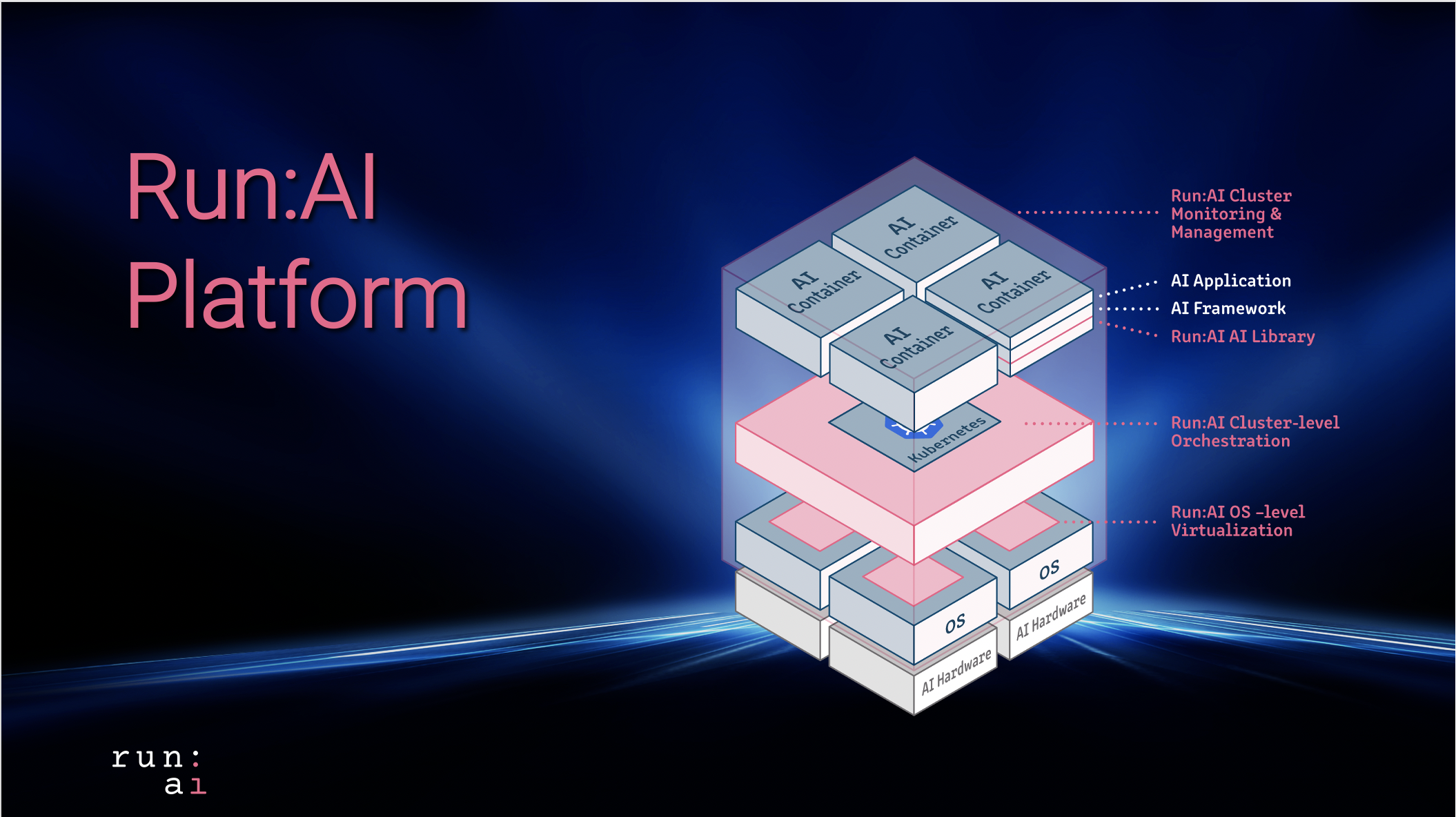 AI
AI
 AI
AI
 AI
AI
Artificial intelligence orchestration and virtualization software startup Run:AI Labs Ltd. said today it’s now in expansion mode after raising $30 million in a new round of funding.
Insight Partners led the Series B round, which also saw the participation from existing investors TLV Partners and S-Capital. It brings Run:AI’s total amount raised to $43 million, following its seed funding and Series A rounds in 2019.
Run:AI has built a specialized virtualization layer for deep learning that’s able to train models that run on graphics processing units much faster and more efficiently, using less resources. Deep learning is a subset of AI that mimics the way the human brain works and enables technologies such as image recognition, autonomous driving, smart assistants and more.
The company says its platform is the first to bring operating system-level virtualization software to AI workloads that run on GPUs, inspired by the virtualization and management of CPUs that revolutionized computing back in the 1990s. Run:AI’s virtualization platform works by pooling the resources of large clusters of GPUs and sharing these among different AI workloads by automatically assigning the required amount of compute power each one needs, whether it’s just a fraction of a single GPU or one enormous cluster.
One of the critical ingredients of Run:AI’s software stack is its compute abstraction layer that uses graph-based parallel computing algorithms to analyze deep learning models and split them into smaller parts. It can then train different parts of each model in parallel to accelerate the time it takes to complete the training process. This abstraction layer also helps to overcome the limitations of the GPUs’ underlying random-access memory, so bigger and more accurate models can be trained.
Fara Hain, Run:AI’s vice president of marketing, told SiliconANGLE that the company’s technology is unique, so it doesn’t have any competitors at this stage — not even VMware Inc., which gave birth to the idea of virtualization in CPUs.
“VMware bought a company called Bitfusion in 2019 that’s similar to Run:AI in some ways as it also does GPU virtualization, but it does not do scheduling and orchestration, nor fractional GPUs like we do,” Hain said. “It’s focused on VMs, not cloud-native workloads like Run:AI.”
Run:AI said that it has grown its customer base considerably since its launch in 2019, with enterprises in the automotive, finance, defense, healthcare and manufacturing sectors using its software to bring their AI solutions to market faster. It said that its platform helps customers maximize their GPU resource usage by between 25% and 75%.
“The more experiments a team runs, and the faster it runs them, the sooner a company can bring AI solutions to market,” said Run:AI co-founder and Chief Executive Omri Geller. “Every time GPU resources are sitting idle, that’s an experiment that another team member could have been running, or a prediction that could have be made, slowing down critical AI initiatives.”
Run:AI said it plans to use the new funds to triple its workforce this year, and it’s actively recruiting new AI developers at its headquarters in Tel Aviv, Israel.
THANK YOU